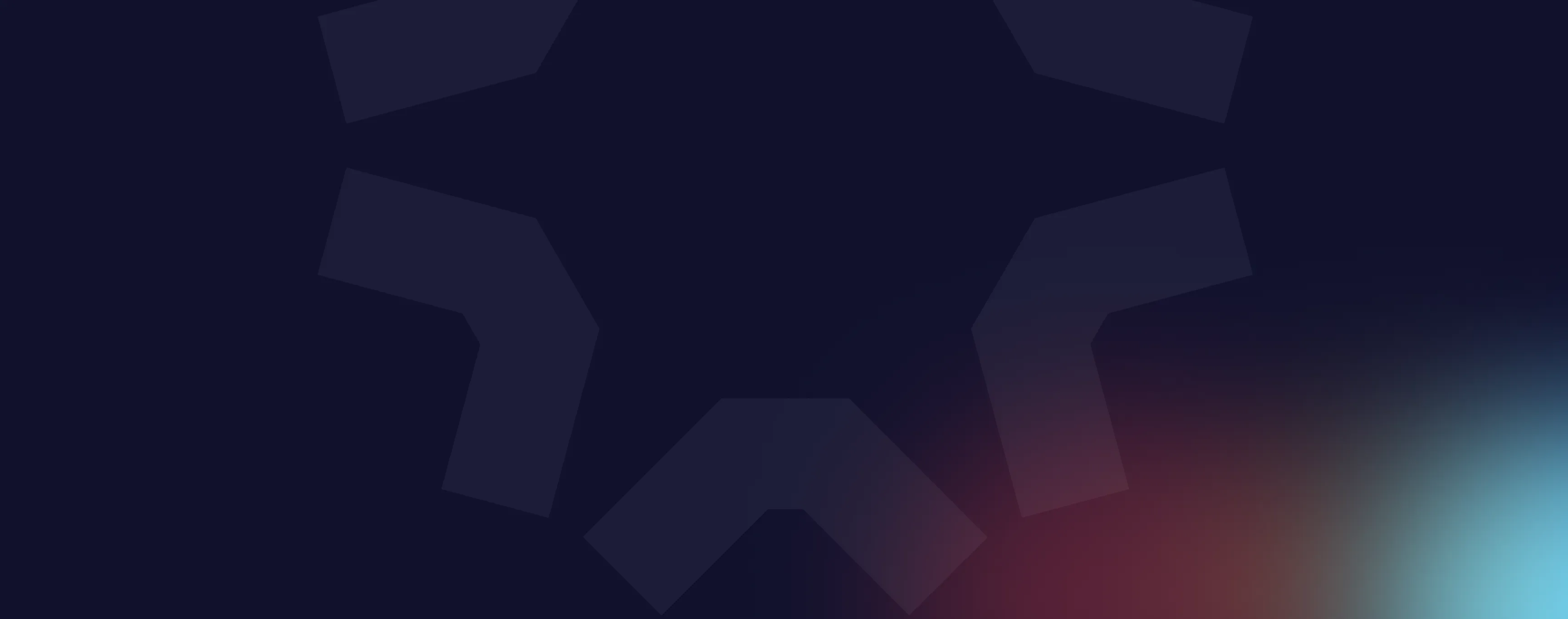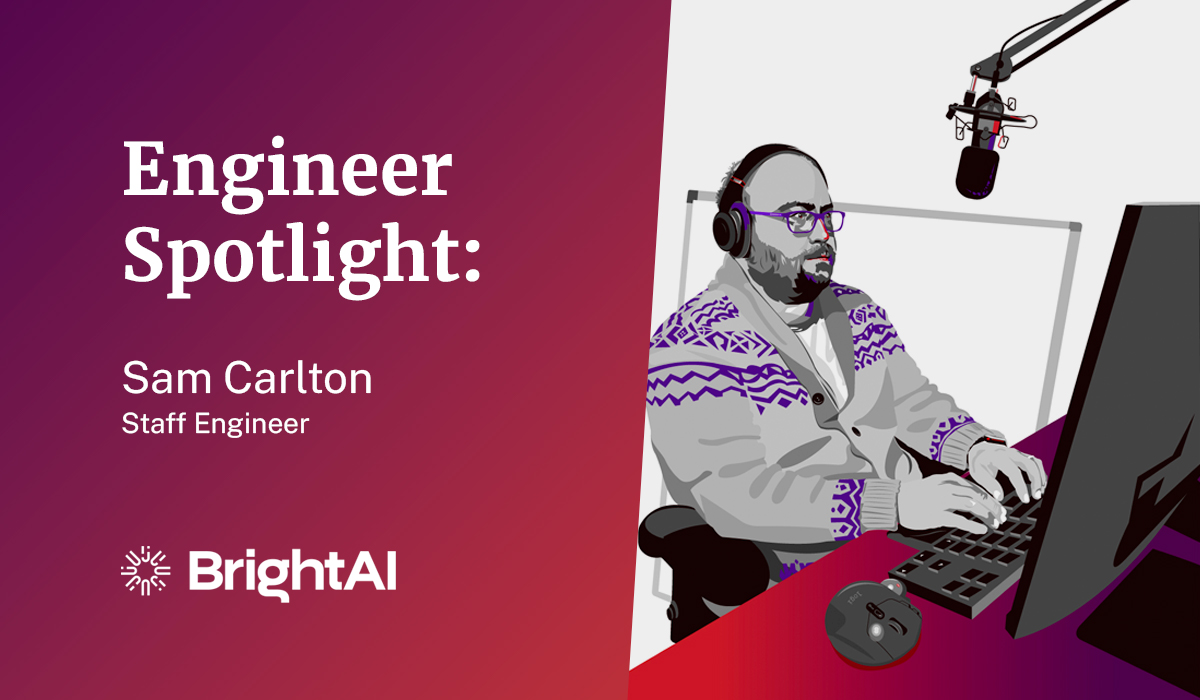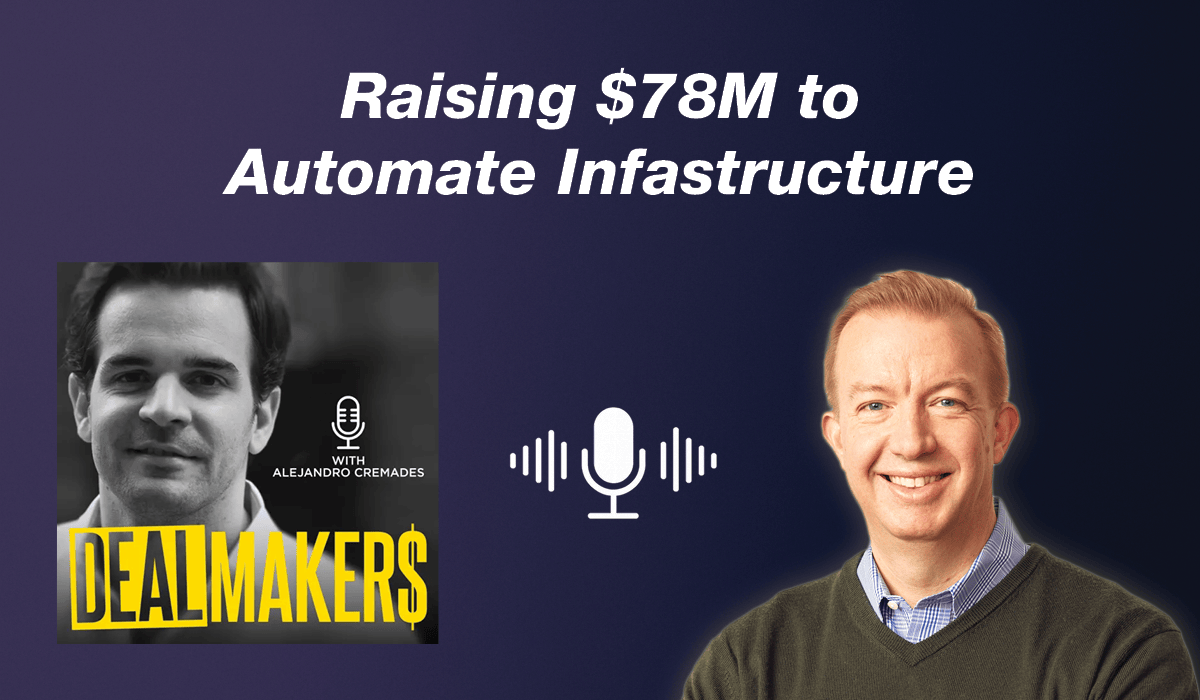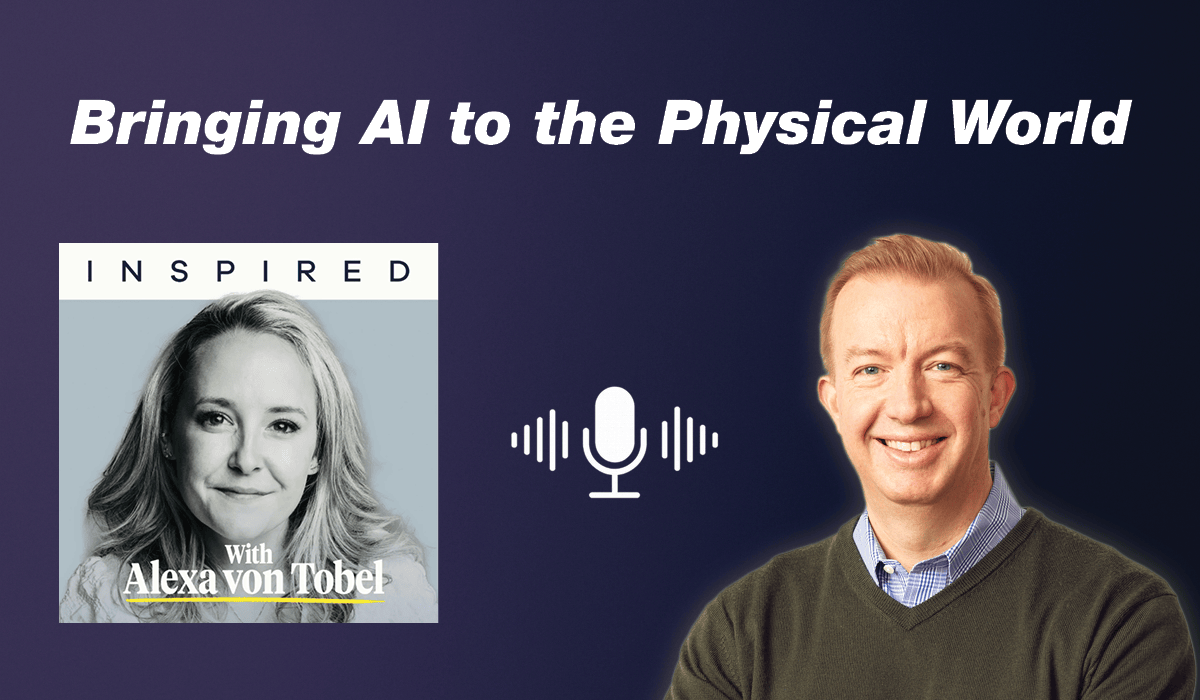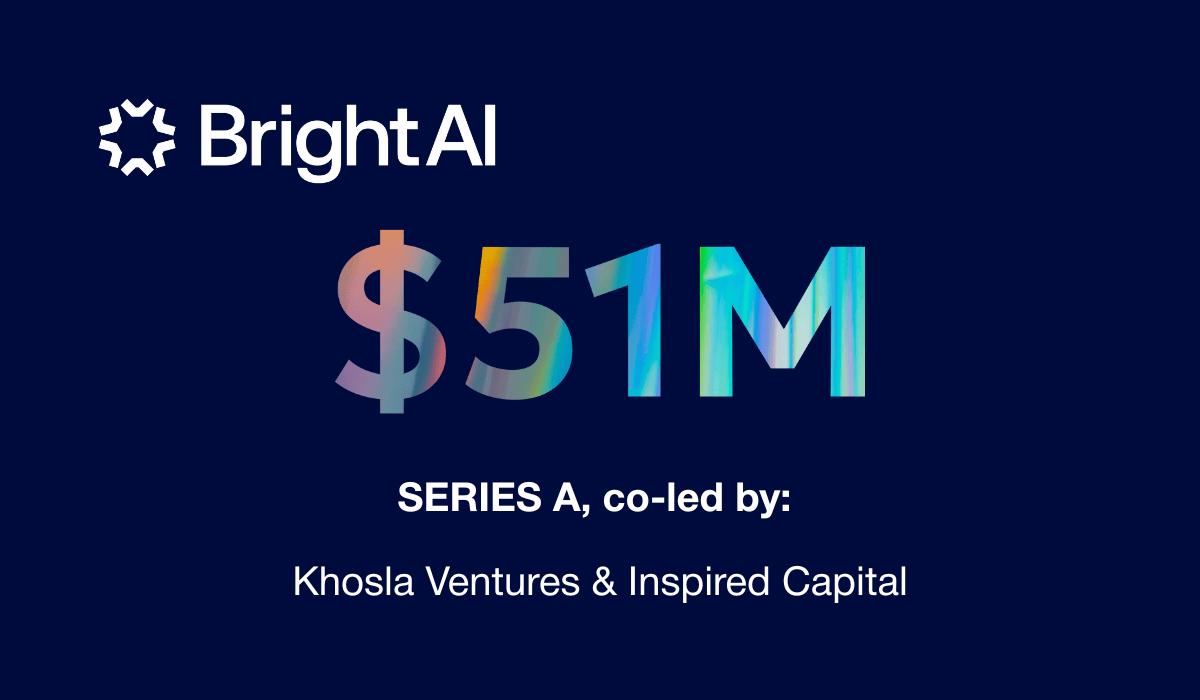When we asked our team at BrightAI ‘Who is your absolute most impressive teammate?,’ three names received the most votes. One of them was Staff Engineer, Sam Carlton.
COMMENTS FROM COLLEAGUES:
Sam is able to break down projects into components and guide the right technology. He is both humble and detailed. He communicates clearly and always follows up. He knows his audience and is relatable and friendly.
In the day-to-day development of features, I approve greatly of his pragmatic approach and desire to keep a project on track amid lack of clarity and definition. Having tangible websites makes discovering holes easier and faster, and Sam is always working to keep the product development cycle moving forward.
We chatted with Sam about his background and his approach to his work. He has obviously made a strong impact in only eight months.
On being the go-to person for web tech.
I was so surprised that I would’ve been in the top three, just by the sheer caliber of folks here. I don’t think there’s a person on the engineering team who I haven’t asked for help, so maybe I’m just always reciprocating and helping out as the go-to person for web tech when they need it.
I’ve been exposed to a lot of new areas of the software development life cycle, and naturally I’ve had to reach out to the subject matter experts in their particular fields for help. I’ve had the opportunity to learn from them through that process. And I’d like to think I was able to teach them something in return, and maybe that’s why the relationships between us have been so positive.
On putting the users first.
I am focusing on the UX, or the user experience, side of our products—the place where our customers actually log into on the web. Think of it like the admin portal, the dashboard that someone would log in to see all of the metrics related to their business.
We’ve been primarily focused on building up what we’re calling a studio. It’s essentially a way for us to monitor our fleet and our connected devices. We are working on one user-friendly app per vertical.
On being in charge of the challenges.
This is my second start-up. I did have a good eight years back in corporate America between start-ups. That was one of the reasons why I decided to join BrightAI, to just go completely to the opposite end of the spectrum—from being just one team member in some small aspect of a large organization, to being responsible for a whole set of challenges.
On going deep into tech.
A former coworker of mine joined BrightAI, and he reached out to me and said, “I’m working at this start-up now and we’re doing some pretty exciting stuff. You gotta come over here.”
One of the benefits with start-ups is we get to choose pretty much all of the technology that we’re using. At corporate America, you’re probably inheriting a system that another team had built and maintained over years and years and years, whereas here it’s all cutting edge, very modern. I like the problem space. It might sound boring if you say you work with laundry machines or rat traps, but I think if you go deep enough in any technology—as long as you like technology—you’ll find it interesting.
On working for an exciting start-up vs. a big corporation.
It’s kind of night and day to what it was like at my previous (corporate) role. There were so many more teams that would have to get involved in a decision to just bring a feature or a new app on board.
You get a sense of impact here because there’s not ten other people between you and the customer that are all acting as some sort of feedback funnel. There’s two people between me and the customer now. It’s about getting direct feedback and feeling like what you are working on has a direct impact, versus playing some small part in the overall structure of the company.
On lightening the load.
Primarily, I’m focused on how it (the user platform) functions. The goal is to make it frictionless to use. A lot of the interactions we’re targeting now are just supposed to be light touch bases. One of the goals of bringing AI into an industry like pest control isn’t to make it so that people have to actually go and check these dashboards all the time. It’s there if they need it, but ideally, they’re getting notifications. If we’re doing a good enough job, they should be proactively notified of the actions that they need to take. They shouldn’t have to be checking the app all the time.
On working remote.
I definitely miss the face-to-face interaction with a lot of folks. There’s no question about whether you can be more productive in certain times when you’re in an office, like strategy meetings, when you can get together with a whiteboard. No software has really gotten that good in collaborative thinking yet—that’s irreplaceable.
I don’t miss all of the shoulder tapping, interruptions and noise you get in the office. Working from home, I can get a solid six hours of just being able to focus on the code, and that kind of uninterrupted time is what really can make a productive day.
I think that speaks to a lot of the trust that we have among the engineering team, because there’s very little micromanagement. We’re depending on each other to all get our work done. There’s a healthy trust among the team, and that’s why we don’t have so many meetings in the first place.
On staying organized.
I’m going on 20 years now as a professional developer, so I just have a ton of experience in staying organized in my day-to-day. I’ve got a personalized system that I use. I have nothing on my desktop, and there’s nothing on my actual desk; because if it’s not something that I actually need to be focusing on or doing, it’s just simply removed from the equation. I focus on only the thing that I have to do that day or the next day. That’s kind of one of the benefits of the start-up. What does the customer need immediately for a launch? We’re staying focused on what matters and getting rid of everything that doesn’t.
On being part of a special team.
I’m just so absolutely buzzed to be working with my teammates. It’s always this incredible enthusiasm of, “Oh, it’s so good, I get to work with so and so, and they’re amazing.” Nobody wants to let anyone else down. It feels like the chemistry is just incredible. It’s very special.
What I was born to do.
I learned how to program when I was in elementary school, back in 1998. I built a little program for the T 83 Calculators for the PI theorem. A squared plus B squared equals C squared. You could give it the inputs for your math homework, and it would solve it for you and show you the work. I shared it with all the other kids in my grade. I made milk money.
I guess I’m one of those people who got really lucky and can say that if you get to do what you love, you don’t ever feel like you’re working.
